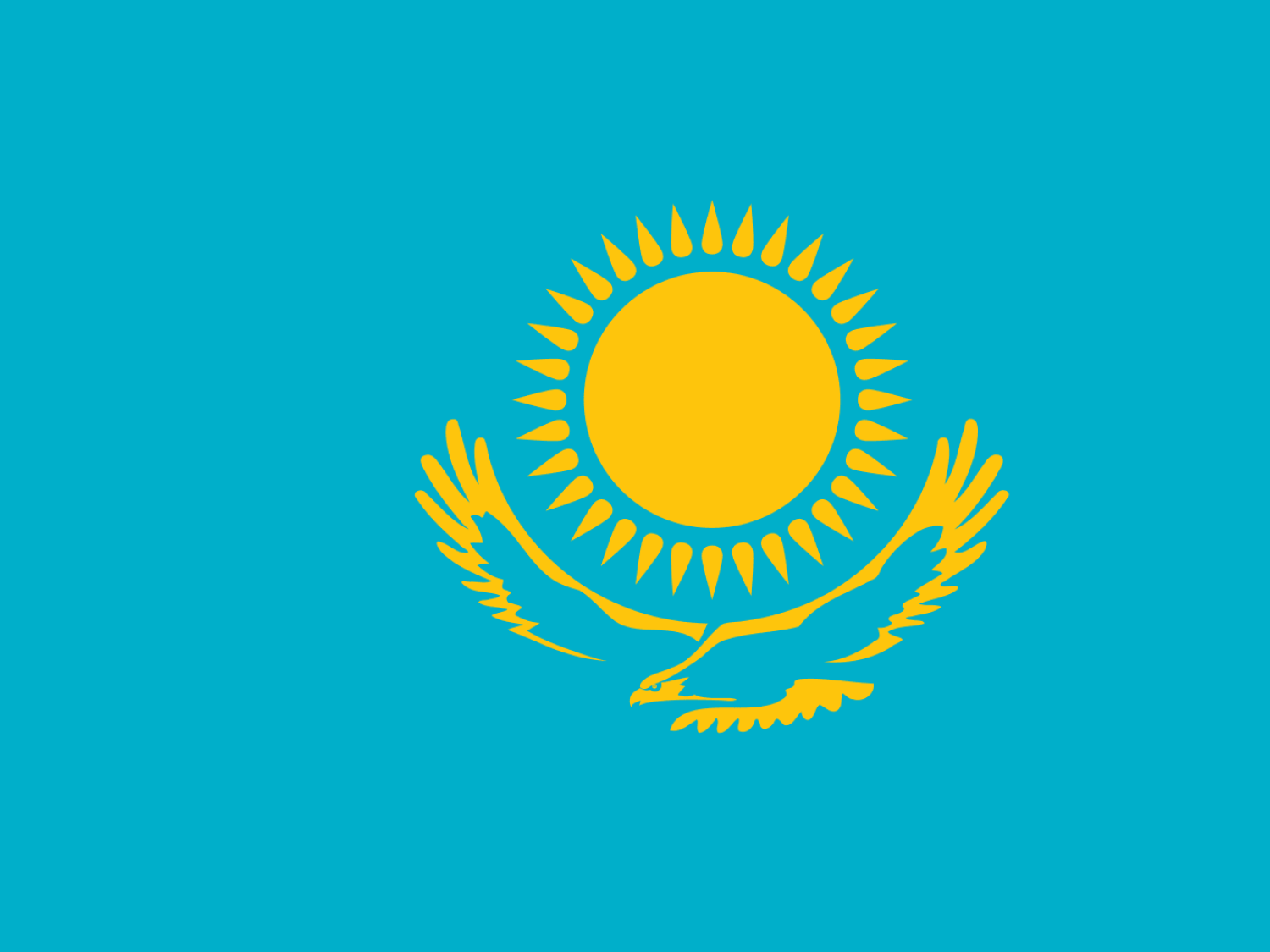Moving to Kazakhstan
Simply move better with reloqio
✔️ Get offers free of charge – No obligation, no worres.
✔️ Quality-tested partners – Reliable and experienced.
✔️ Selection in your region – Find the perfect offer and save up to 45%.

Overview
Introduction to Kazakhstan
Kazakhstan, the world’s largest landlocked country and a key player in Central Asia, is known for its vast steppes, rich natural resources, and diverse cultural heritage. The capital city, Astana (formerly Nur-Sultan), and the largest city, Almaty, are the country’s primary economic and cultural hubs. Kazakhstan’s unique blend of Soviet history, nomadic traditions, and modern development makes it an intriguing destination. However, the country also faces challenges, including political centralization, economic disparities, and environmental issues, which can impact the experience of living and working there.
Why Move to Kazakhstan
Moving to Kazakhstan offers the opportunity to experience life in a country that is rapidly developing while retaining strong cultural ties to its past. Kazakhstan’s growing economy, particularly in sectors like oil, gas, and mining, attracts expatriates from around the world. The cost of living is relatively low, and the country’s cities are increasingly cosmopolitan. However, expatriates should be prepared for challenges, such as language barriers, the often harsh climate, and navigating a bureaucracy that can be slow and complex. Additionally, while Kazakhstan is generally stable, political freedoms are limited, and there may be restrictions on free expression and assembly.
Cost of Living in Kazakhstan
The cost of living in Kazakhstan is moderate, especially compared to Western countries. Housing, transportation, and basic goods are generally affordable, particularly outside of the major cities like Astana and Almaty. However, the cost of imported goods, especially luxury items, can be high. Utilities and services are also reasonably priced, although the quality and availability of these can vary. In major cities, the cost of living is higher, particularly in terms of housing and dining out, but still generally lower than in many Western or Asian capitals. Expatriates should budget carefully, particularly if they plan to maintain a Western standard of living.
Visa and Residency
Types of Visas
Kazakhstan offers several types of visas, including tourist, business, and work visas. The work visa is the most common for expatriates and requires sponsorship from a Kazakhstani employer. The application process can be complex, requiring detailed documentation such as proof of employment, qualifications, and a clean criminal record. Business visas are also available for those conducting short-term business activities. Visa regulations in Kazakhstan can change frequently, so it’s important to stay updated on the latest requirements and ensure that all paperwork is accurate and complete.
Requirements for Obtaining Residency
Obtaining residency in Kazakhstan typically begins with securing a work visa. Once in the country, expatriates can apply for a temporary residence permit, which is usually valid for one year and can be renewed. The process involves submitting various documents, including proof of employment, health insurance, and housing arrangements. For those planning to stay long-term, permanent residency is an option, but it requires meeting more stringent criteria, including a certain period of continuous residence in the country. The residency process can be bureaucratic and time-consuming, so it’s advisable to work closely with your employer or a legal expert to navigate it successfully.
Renewing Residency
Renewing residency in Kazakhstan involves extending your work visa and residence permit. The renewal process requires submitting updated documents and ensuring that all requirements are met on time. Given the potential for changes in immigration laws, it’s crucial to begin the renewal process well before your current permit expires. Employers typically assist with visa and residency renewals for expatriate employees, but it’s important to stay informed about any new regulations that might affect your status.
Finding Accommodation
Popular Neighborhoods in Kazakhstan
In Almaty, popular neighborhoods for expatriates include Medeu, Samal, and Bostandyk, known for their modern amenities, proximity to international schools, and scenic views of the mountains. Astana offers areas like Yesil District and Saryarka, which are favored for their modern infrastructure and proximity to government offices and business centers. Housing in these areas can be expensive, particularly for high-end apartments and villas, but they offer access to quality services and amenities. Outside of these cities, housing is more affordable, but the availability of expatriate-friendly accommodations may be limited.
Renting vs Buying Property
Renting is the most common option for expatriates in Kazakhstan, especially for those on short- to medium-term assignments. Rental properties range from modern apartments in city centers to larger homes in suburban areas. Rental agreements typically require a security deposit and the first month’s rent in advance. Buying property in Kazakhstan is possible for foreigners, but the process can be complex and involves navigating local property laws and regulations. It’s advisable to work with a reputable real estate agent and legal advisor if considering purchasing property, as there are restrictions on foreign ownership of land, particularly agricultural land.
Tips for Finding Accommodation
When searching for accommodation in Kazakhstan, consider factors such as proximity to work, availability of public transport, and access to amenities like schools, healthcare, and shopping centers. Working with a local real estate agent can be helpful, particularly for those unfamiliar with the market. It’s important to inspect properties carefully before signing a lease, as the quality of housing can vary widely. Be prepared to negotiate rental terms, and ensure that all lease agreements are clear and legally sound. Given the high demand for quality housing in major cities, it’s advisable to start your search early.
Kazakhstan’s location at the crossroads of Europe and Asia provides opportunities for travel and exploration. For those interested in exploring the region, the historical cities and cultural diversity of Russia, the stunning landscapes of Kyrgyzstan, or the rich heritage of Uzbekistan are all within reach.
Settling In
Healthcare System in Kazakhstan
Kazakhstan has a developing healthcare system, with both public and private options available. Public healthcare is affordable but can be inconsistent in quality, particularly outside major cities. Many expatriates prefer private healthcare facilities, which offer higher standards of care and English-speaking staff, but at a higher cost. It is essential to have comprehensive health insurance that covers private healthcare and potential medical evacuation, as some specialized treatments may not be available in Kazakhstan. The healthcare infrastructure in cities like Almaty and Astana is improving, but it can still be challenging to find high-quality care in more remote areas.
Education System in Kazakhstan
Kazakhstan offers a range of educational options for expatriate families, including public schools, private schools, and international schools. Public schools follow the national curriculum and typically teach in Kazakh or Russian, which can be challenging for non-Kazakh or non-Russian-speaking children. Many expatriate families choose international schools, which offer curricula based on British, American, or International Baccalaureate (IB) systems. These schools are mainly located in Almaty and Astana, and they are known for their high academic standards, though fees can be high. Early application is recommended, as spaces in international schools can be limited.
Cultural Etiquette and Customs
Kazakhstan is a culturally diverse society with a mix of Kazakh, Russian, and other ethnic influences. Understanding and respecting local customs is important for expatriates. Hospitality is a key aspect of Kazakh culture, and it’s common to be invited to homes for meals. Dress codes are generally conservative, especially in more rural areas, and it’s important to dress modestly, particularly when visiting religious sites. Business culture can be formal, with an emphasis on respect for hierarchy and building personal relationships. Learning some basic Russian or Kazakh can greatly enhance your experience and help you integrate more smoothly into Kazakh society.
{filterable_table}
Ready for your move to Kazakhstan? Get free quotes now!
Enquire about moving offers here and get quick answers with cost estimates.
It only takes 2 minutes and you can save up to 45% on your move to Kazakhstan!
